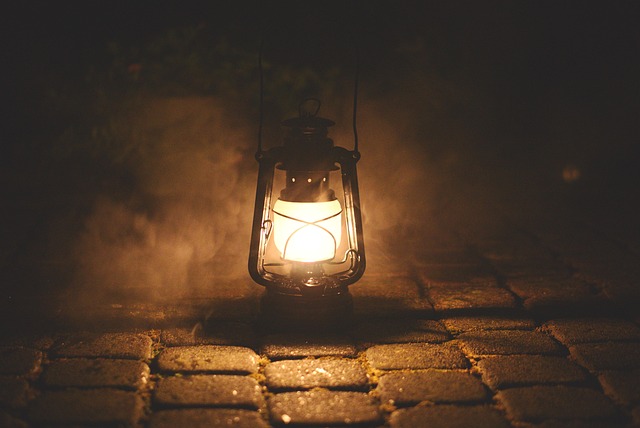Eugene's electrical safety regulations for lighting installations protect residents from hazards like outdated wiring and faulty outlets. Staying informed ensures compliance, reduces fire risks, and enhances home security through strategic lighting design. Regular evaluations by licensed electricians are crucial to identify and address issues in older homes, promoting energy efficiency and preventing accidents during power surges.
“Ensuring the safety of your Eugene home starts with understanding local electrical regulations and identifying potential hazards. This comprehensive guide explores Eugene’s electrical safety standards, highlighting the significance of proper lighting installation in enhancing residential security. We’ll delve into common risks, from faulty wiring to outdated systems, offering essential tools and strategies for evaluation. Learn how foundational safeguards, including modern lighting installations, can protect your family and mitigate risks, making your home a safer haven.”
- Understanding Eugene's Electrical Safety Regulations
- The Role of Lighting Installation in Home Safety
- Common Electrical Hazards in Residential Properties
- Evaluating Your Home's Wiring System
- Essential Tools for a Comprehensive Assessment
- Protecting Your Family: Implementing Foundational Safeguards
Understanding Eugene's Electrical Safety Regulations

Eugene, like many cities, has specific electrical safety regulations in place to protect its residents. These regulations cover a range of aspects, from outdated wiring to proper grounding and up-to-date electrical panels. Homeowners should be aware of these rules, especially when considering renovations or new installations, such as lighting upgrades.
Understanding local codes is crucial when it comes to electrical safety evaluations. For instance, Eugene may have restrictions on certain types of wiring or specific requirements for outdoor lighting installations. Staying informed ensures that any modifications to a home’s electrical system comply with these regulations, thereby reducing the risk of electrical hazards and potential fires.
The Role of Lighting Installation in Home Safety

Proper lighting installations play a pivotal role in enhancing home safety. Well-lit spaces deter potential intruders, making residents feel secure in their own homes. Adequate illumination also improves visibility, reducing trip and fall hazards within the household, especially for elderly or visually impaired occupants.
In addition to security and accessibility, strategic lighting installations can serve as a design element, contributing to an aesthetically pleasing home environment. Modern lighting fixtures offer a range of styles and functionalities, allowing homeowners to create ambiance, highlight architectural features, and ensure efficient energy use. Investing in quality lighting installations is not just about safety; it’s also about creating a comfortable, inviting space that reflects the homeowner’s personal taste.
Common Electrical Hazards in Residential Properties

In residential properties, common electrical hazards can often go unnoticed but pose significant risks. One of the primary concerns is outdated or faulty wiring, which can lead to electrical fires and shocks. Older homes in Eugene may have aging electrical systems that are no longer up to modern safety standards, especially when it comes to handling increased energy demands for lighting installation and other high-power appliances. Another hazard is the misuse or overuse of extension cords, which, if not properly secured or used for suitable purposes, can result in overheating and potential ignition sources.
Moreover, inadequate grounding and poor electrical connections are also prevalent issues. Grounding ensures that any stray electric current has a safe path to follow, preventing accidents. Homes lacking proper grounding or having corroded or loose connections may face increased risks during storms or power surges. Additionally, faulty outlets, flickering lights, and circuit breakers that trip frequently indicate potential problems that require immediate attention from licensed electricians to prevent hazardous situations.
Evaluating Your Home's Wiring System

When conducting a home electrical safety evaluation, assessing your wiring system is a crucial step. It involves thoroughly examining the structure and condition of your home’s electrical wiring, including old or outdated components. Many older homes in Eugene may have outdated wiring that could pose potential hazards, such as increased fire risk and circuit overloads. A professional electrician can help identify these issues by testing for signs of damage, corrosion, or faulty connections. They can also check for adequate grounding and bonding systems, ensuring your lighting installation and overall electrical system meet modern safety standards.
Regular inspections can help prevent accidents and ensure the longevity of your home’s electrical components. By addressing any problems early on, you can avoid costly repairs and potential disasters. Upgrading to a more efficient wiring system not only enhances safety but also allows for better integration of modern lighting installations, providing both improved functionality and energy efficiency in your Eugene residence.
Essential Tools for a Comprehensive Assessment

A comprehensive home electrical safety evaluation requires specific tools to ensure accurate assessments. One crucial tool is a voltage tester, which helps identify active and live wires, enabling safe navigation around power sources. This device is essential for verifying circuit continuity and isolating potential hazards.
Additionally, a multimeter is invaluable for measuring electrical current, resistance, and voltage. It allows professionals to test the performance of lighting installations, outlets, and switches, ensuring they operate within safe parameters. With these tools, evaluators can detect faulty wiring, overloaded circuits, or outdated components, addressing them before they pose significant risks to homeowners.
Protecting Your Family: Implementing Foundational Safeguards

Protecting your family starts with implementing foundational safeguards in your home, especially when it comes to electrical safety. A comprehensive evaluation by a licensed electrician is crucial to identify potential hazards and ensure your home’s wiring is up to code. This includes inspecting outdated electrical panels, frayed wires, and improperly installed outlets or switches, which are common causes of fires and accidents.
By addressing these issues, you not only reduce the risk of electrical fires but also enhance the overall safety of your family. Proper lighting installation, for instance, plays a significant role in preventing accidents and improving accessibility. Well-lit homes deter criminals and ensure everyone can navigate their surroundings easily, especially during power outages when backup lighting becomes essential.
